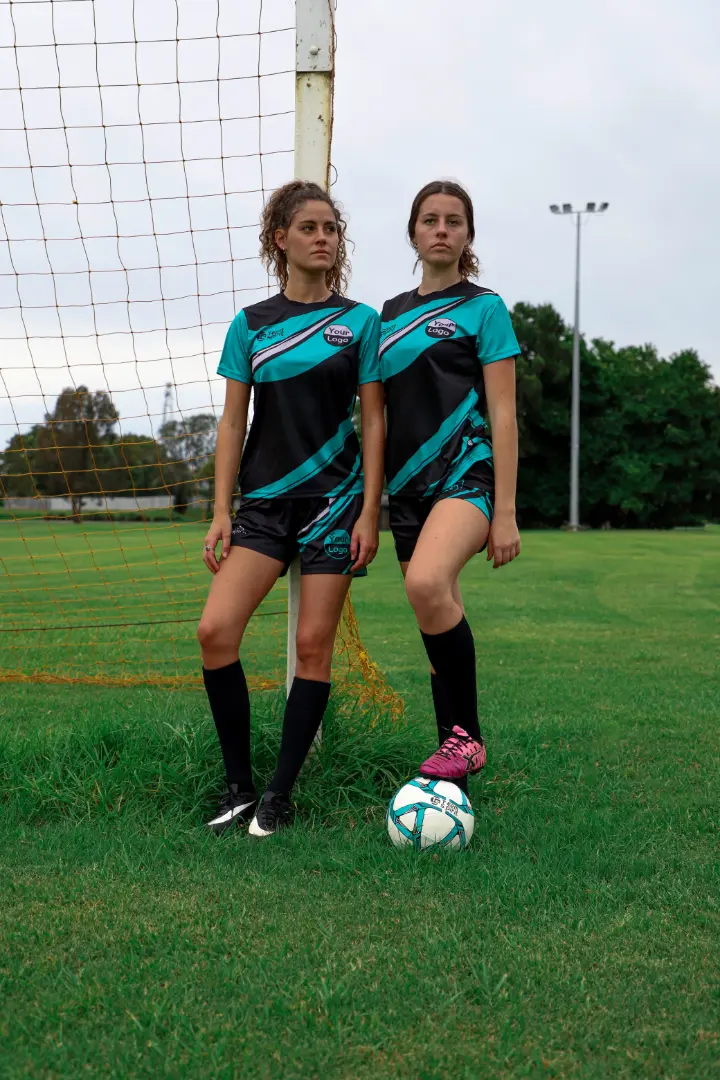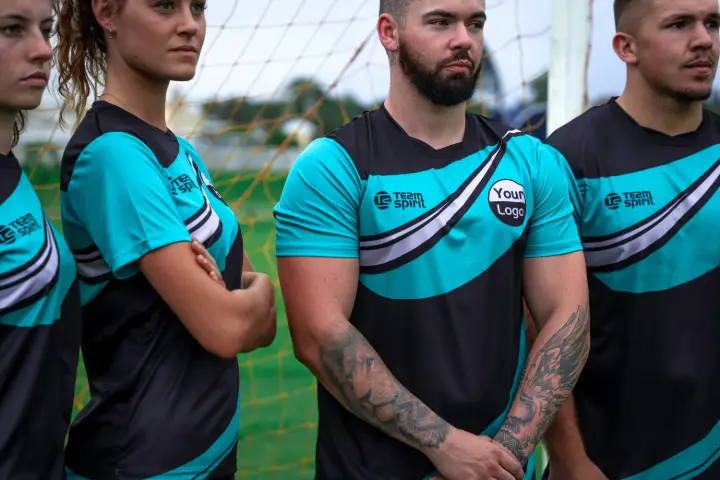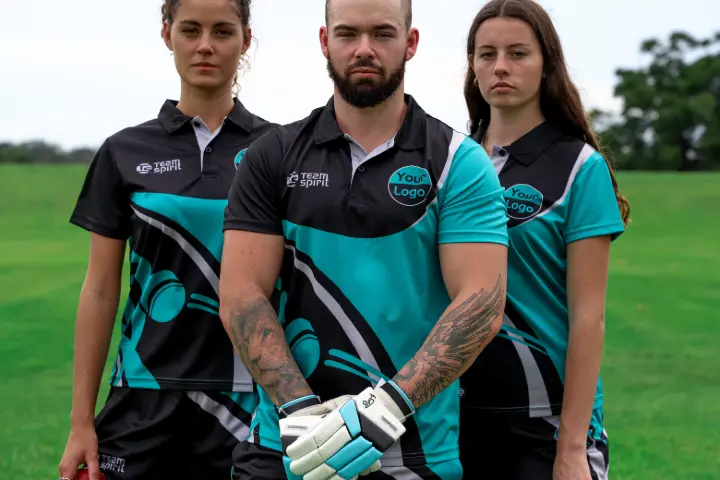Every successful team has something beyond talent and skill that drives them forward, a strong team culture. In sport, culture is the invisible glue that shapes how players behave, support one another, and work towards shared goals. It’s about more than just winning; it’s about creating an environment where every member feels valued, motivated, and connected.
Whether you’re coaching a grassroots junior side, managing a school team, or playing in a competitive league, team culture influences every training session, match, and off-field interaction. From the way teammates celebrate success to the pride they feel when pulling on a uniform, culture defines the identity of a team and its long-term success.
Key Takeaways
- Team culture in sports is the foundation of success, not an afterthought.
- Strong culture boosts performance, trust, resilience, and enjoyment.
- The core pillars include trust, shared goals, leadership, communication, and rituals.
- Coaches and leaders play a central role in shaping positive culture.
- Culture extends beyond the game, influencing school, work, and community life.
- Teamwear is a powerful expression of identity, pride, and belonging.
- Team Spirit Sports helps clubs and schools build culture through custom uniforms designed to reflect their values.
What Is Team Culture in Sports?

Team culture in sports refers to the values, attitudes, and behaviours that shape how a group operates. It’s the shared identity that players buy into, influencing how they train, compete, and treat one another.
- Positive culture is built on trust, respect, and shared purpose. It fosters commitment, resilience, and pride in representing the team.
- Negative culture can cause division, low morale, and a lack of motivation, no matter how much raw talent is on the field.
Importantly, culture isn’t optional. Every team has one, the key difference lies in whether it’s intentionally developed to bring people together, or left unchecked to undermine performance.
Why Strong Team Culture Matters
A strong team culture is the foundation of long-term sporting success. While skill and strategy win games, culture keeps teams consistent, motivated, and united across seasons.
- Performance boost: Athletes who trust and respect one another push harder and perform better under pressure.
- Stronger communication: Open, honest dialogue helps avoid misunderstandings and keeps everyone on the same page.
- Resilience in tough times: A united culture helps players bounce back from losses and setbacks.
- Inclusive environment: Positive culture ensures every player, regardless of skill level, feels valued and motivated.
- Enjoyment and retention: Teams with good culture keep players engaged, reducing drop-outs in junior and community sport.
Culture isn’t just an add-on, it’s where true success begins. For teams at any level, investing in culture pays off both on and off the field.
The Core Pillars of a Positive Team Culture

A strong team culture doesn’t happen by chance, it’s built on clear foundations that guide behaviour and bring people together. While every club or squad has its own traditions, the following pillars are found in most successful teams:
- Trust and respect: Players need to believe in one another, both on and off the field. Mutual respect creates an environment where everyone feels safe to contribute.
- Shared goals and accountability: Teams thrive when everyone works towards the same objectives. Accountability ensures each player understands their role in achieving success.
- Leadership and role models: Good leaders set the tone. Whether it’s a coach, captain, or senior player, role models influence how the rest of the team behaves.
- Open communication: Strong culture is built on listening as much as speaking. Honest conversations about performance, effort, and support help avoid conflict and strengthen unity.
- Rituals and identity: From pre-game huddles to post-match celebrations, shared rituals make culture visible. Uniforms also play a key role, the colours, logos, and designs worn on the field become powerful symbols of pride and belonging.
By focusing on these pillars, teams can create a culture that motivates athletes, strengthens bonds, and withstands challenges.
How Coaches and Leaders Build Team Culture
Coaches, captains, and senior players play a vital role in shaping the culture of a team. Their influence goes beyond tactics and drills, it sets the environment where athletes learn, grow, and connect.
- Set expectations early: Define the standards of behaviour and effort from the first training session. This clarity prevents misunderstandings later in the season.
- Encourage collaboration: Give players a voice in decision-making. When athletes feel heard, they’re more likely to buy into the team’s values.
- Balance discipline with support: Holding players accountable is important, but so is recognising effort and improvement. Both praise and constructive feedback build trust.
- Promote bonding opportunities: Activities away from the pitch, like team dinners or community service, help athletes connect on a personal level.
- Celebrate milestones: Recognising achievements, from debut games to training attendance, reinforces positive behaviour and shows every player they matter.
Great leaders understand that culture isn’t imposed, it’s nurtured. By modelling the right behaviours, coaches and captains create an atmosphere where athletes not only perform well but also enjoy being part of the team.
The Role of Teamwear in Team Culture

Uniforms are more than just clothing, they are symbols of identity, belonging, and pride. The moment a player pulls on their team colours, they’re reminded of the values, history, and goals their group stands for.
- Unity: Matching kits create a sense of equality where every member feels included, from star players to first-time participants.
- Professionalism: Teams that look organised often feel and perform more confidently on the field.
- Tradition: Colours, crests, and designs become part of a club’s legacy, connecting past, present, and future players.
- Motivation: Wearing the same uniform reinforces the mindset of working together for a shared outcome.
In many ways, teamwear is the most visible expression of culture. It shows the outside world who you are, while reminding players of the standards and values they represent every time they compete.
Read more: Top Benefits of Custom Teamwear for Your Club or Organisation
How Team Spirit Sports Supports Team Culture
At Team Spirit Sports, we understand that team culture is built not only through values and actions, but also through identity and presentation. That’s why we provide:
- Custom designs that reflect your team’s values: From bold colours to unique logos, every kit can be tailored to represent your culture.
- Wide range of fabrics and fits: Comfort and performance go hand in hand, ensuring athletes feel their best while playing their part.
- Online 3D kit designer: Visualise your team’s look before ordering, making sure the final product perfectly represents your identity. Try it here!
- Bulk orders for schools and clubs: Keep your culture consistent across teams, age groups, and divisions.
By partnering with Team Spirit Sports, you’re not just ordering uniforms, you’re strengthening the culture that holds your team together.
Building a Winning Culture On and Off the Field
Team culture in sports is the foundation of lasting success. It shapes how athletes communicate, how they respond to challenges, and how they enjoy their time on and off the field. A positive culture brings out the best in individuals while uniting them under a shared identity.
While culture is built through trust, leadership, and shared experiences, it’s also expressed in what a team wears and how it presents itself. That’s where Team Spirit Sports can help, by creating custom uniforms that bring your culture to life.
Every team deserves to feel united, confident, and proud. Contact us today and start building your culture today, and carry it with you every time your team steps onto the field.
FAQs About Team Culture in Sports
1. What does team culture mean in sports?
Team culture in sports refers to the shared values, behaviours, and traditions that guide how athletes train, compete, and support one another. It’s the foundation of unity, motivation, and long-term success.
2. How do you create a positive team culture?
Positive team culture is created through trust, respect, clear goals, and open communication. Coaches and leaders play a key role in setting expectations and encouraging rituals that build identity.
3. Why is culture more important than talent?
Talent may win games in the short term, but culture ensures long-term consistency, resilience, and enjoyment. A united team with strong culture often outperforms a group of skilled individuals without shared values.
4. Can uniforms really influence team culture?
Yes. Teamwear is one of the most visible symbols of identity and pride. Wearing the same colours creates unity, builds professionalism, and reminds athletes of the values they represent.
5. How can Team Spirit Sports help build team culture?
Team Spirit Sports provides custom-designed uniforms that reflect your club’s values and identity. With options in fabrics, fits, and colours, plus an easy-to-use 3D kit designer, your team can proudly express its culture both on and off the field.